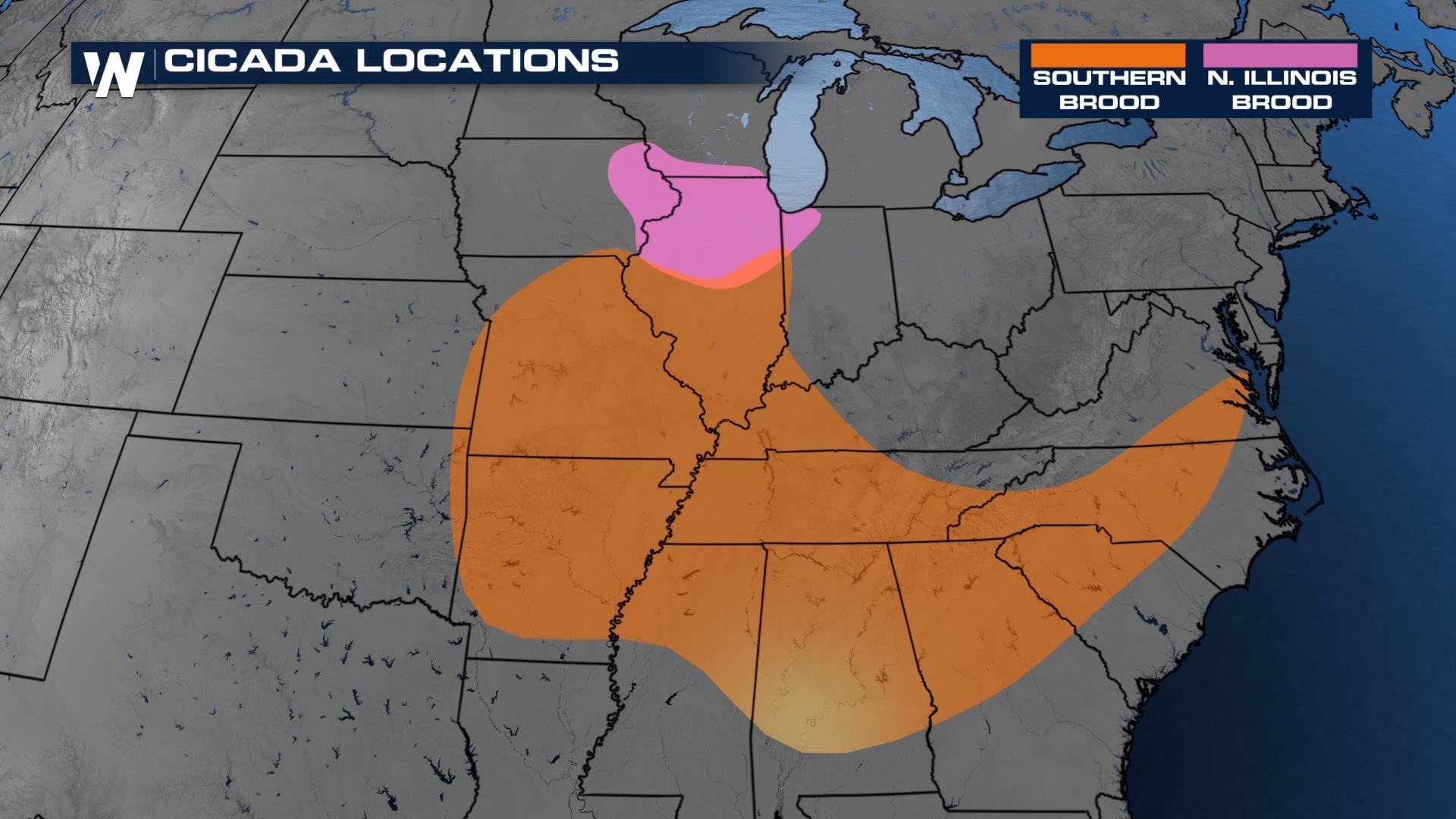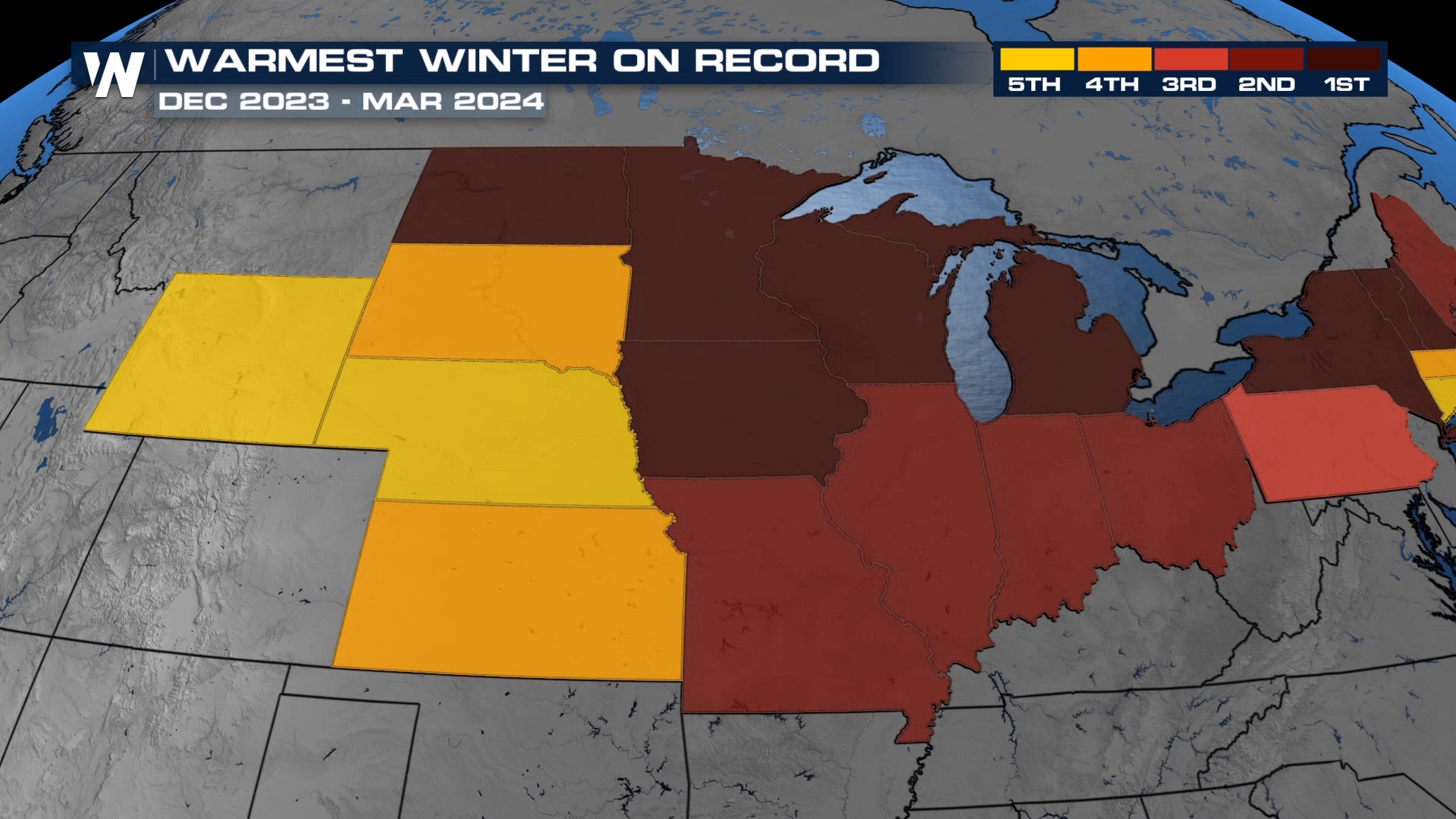Double Trouble: Cicadas Take to the Skies this Spring
It’s the soundtrack to the summer. Nature’s noisemakers are set to return in a big way this year as not one, but two sets of periodical cicadas will emerge in the Midwest and Southeast. It is the first time these two specific broods have surfaced together since 1803! This is the first time since 2015 that a 13 year cycle brood emerges at the same year as a 17 year brood.
The southern brood emerges every 13 years and is known as the Brood XIX, the largest brood in the U.S.. The Northern Illinois brood has a period of 17 years, making these two broods overlap uncommon. They will only overlap in central Illinois, where is expected to be the noisest!

Katie Dana, a researcher with the Illinois Natural History Survey who studies the cicadas says, “We have broods emerging across the U.S. almost every year, but we don’t often have broods emerging at the same time. Just like how birds have different songs, cicadas have different songs...we have over 3,000 different species of cicadas so we have so many different songs.”
Periodical Cicadas are large, loud insects with bright red eyes. They live underground for years. Once the cicadas take to the skies, they will be in the air for about 3-4 weeks, mating before laying eggs and reburying themselves for another 13 or 17 years.
 Depending on where you live, the double brood emergence could start as soon as April but will happen whenever the ground temperatures reach 64°. According to Katie, “It’s those warm soils that push them out of the ground, but they’re also looking for some moisture. If you have really dry soil, it’s going to make it hard for them to dig out.” Given that we've had some of our warmest winters on record in the Midwest we are looking at the opportunity for earlier emergence of the broods.
Depending on where you live, the double brood emergence could start as soon as April but will happen whenever the ground temperatures reach 64°. According to Katie, “It’s those warm soils that push them out of the ground, but they’re also looking for some moisture. If you have really dry soil, it’s going to make it hard for them to dig out.” Given that we've had some of our warmest winters on record in the Midwest we are looking at the opportunity for earlier emergence of the broods.
 If you’re less than thrilled about these beaty-eyed bugs, focus on the positives. They provide extra nutrition for birds and animals and spark a reset for oak trees allowing them to produce more acorns a few years after they emerge. If that’s not enough to get you through... the next time these two broods will be out at the same time won't be for another 221 years, which will give you plenty of time to learn to appreciate the cicada screams.
If you’re less than thrilled about these beaty-eyed bugs, focus on the positives. They provide extra nutrition for birds and animals and spark a reset for oak trees allowing them to produce more acorns a few years after they emerge. If that’s not enough to get you through... the next time these two broods will be out at the same time won't be for another 221 years, which will give you plenty of time to learn to appreciate the cicada screams.